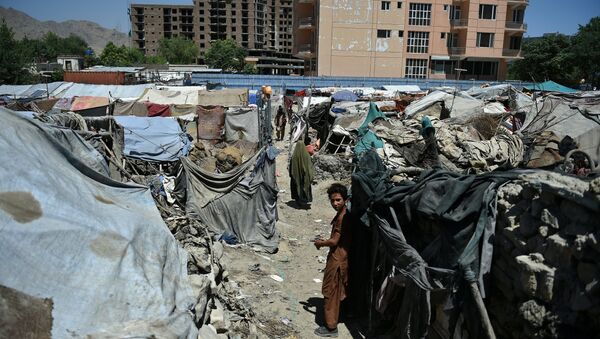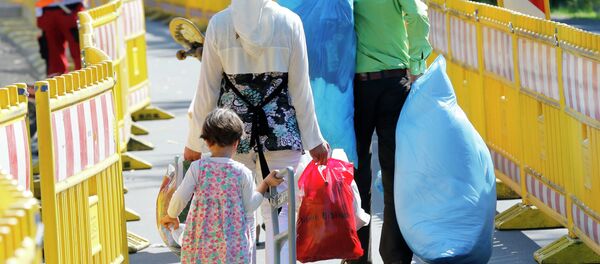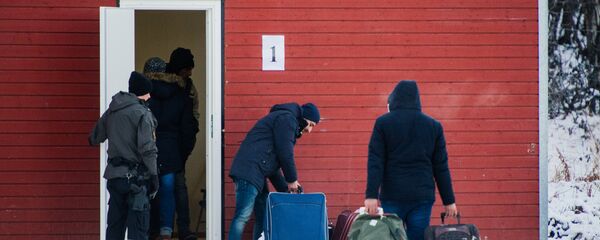"I would not go that far as to say all applicants are entitled to asylum, but a return rate of 99 percent is very high," Kristian Berg Harpviken, director of the Peace Research Institute Oslo (PRIO) told Norwegian daily Aftenposten.
Every year since 2010, Norway has declined 92 or more percent of the Afghan asylum applications, having processed 895 applications throughout the last half of last year and the first half of this year. By contrast, Germany refused 57 percent and Italy only 3 percent, having dealt with respectively 3,300 and 3,500 applications from men in this age group, Norwegian daily Aftenposten reported.
EU to #Afghanistan: accept 80,000 deportees or lose aid https://t.co/Yov7OJKUQB debris inside restaurant post suicide attack #Kabul pic.twitter.com/L4135wFhbV
— Qanta Ahmed (@MissDiagnosis) October 1, 2016
"They [the European countries] enforce basically the same regulations, but interpret them in different ways. Whether or not Afghan migrants are entitled to asylum, is what European countries disagree most about," Elizabeth Collett, director of the Migration Policy Institute (MPI) think-tank, told Aftenposten.
"I am pleased that Norway has such a high rejection percentage. If applicants can stay in safe areas in their home country, they shall be referred there rather than trying to get asylum in Norway," Sylvi Listhaug wrote in an e-mail.
According to Elizabeth Collett, Afghanistan contains many "grey areas," where opinions of safety may diverge.
"Many Afghans are fleeing because they live in an unstable region with few opportunities. They are weary of wars and conflicts and may be at risk of being recruited by armed groups, but they are not necessarily directly persecuted. Therefore, many of them may formally not be entitled to protection," Collett said.
Another errant US #airstrike in #Afghanistan? @SuneEngel & I met survivors who say so in #Jalalabad. https://t.co/HxsC5F6eYj
— Andrew Quilty (@andrewquilty) October 1, 2016
Kristian Berg Harpviken concurred with Collett that the situation in Afghanistan was going in the wrong direction.
"The political, economic and security situation is in a continuous downward trend, and many Afghans believe it will become even worse. There is an important reason for the mass flight. Afghans are fleeing from a lost dream of a better future," Harpviken said.
"Now I understand that Europe does not care about human rights, nor helping people in need," Afghan asylum-seeker Ali Riza Mohammadi, who previously ventured on a perilous journey across the Mediterranean Sea, told Norwegian daily Aftenposten.
"Had I known this before, I would have never come to Norway. I was told that Norway was a good country. Now I cannot apply for asylum in any other [EU] country, because Norway has my fingerprints," Mohammadi explained. "If they send me back to Afghanistan, the Taliban will kill me. I cannot live in Afghanistan. If I get deported, I will flee again," said Mohammadi, who already spent around $5,000 on the trip to Norway.





